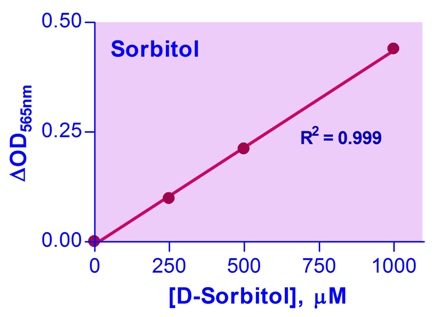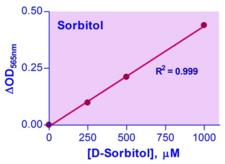Login
Registration enables users to use special features of this website, such as past
order histories, retained contact details for faster checkout, review submissions, and special promotions.
order histories, retained contact details for faster checkout, review submissions, and special promotions.
Forgot password?
Registration enables users to use special features of this website, such as past
order histories, retained contact details for faster checkout, review submissions, and special promotions.
order histories, retained contact details for faster checkout, review submissions, and special promotions.
Quick Order
Products
Antibodies
ELISA and Assay Kits
Research Areas
Infectious Disease
Resources
Purchasing
Reference Material
Contact Us
Location
Corporate Headquarters
Vector Laboratories, Inc.
6737 Mowry Ave
Newark, CA 94560
United States
Telephone Numbers
Customer Service: (800) 227-6666 / (650) 697-3600
Contact Us
Additional Contact Details
Login
Registration enables users to use special features of this website, such as past
order histories, retained contact details for faster checkout, review submissions, and special promotions.
order histories, retained contact details for faster checkout, review submissions, and special promotions.
Forgot password?
Registration enables users to use special features of this website, such as past
order histories, retained contact details for faster checkout, review submissions, and special promotions.
order histories, retained contact details for faster checkout, review submissions, and special promotions.
Quick Order
| Catalog Number | Size | Price |
|---|---|---|
| LS-K165-100 | 100 Tests | $585 |

Sorbitol Assay Kit (Colorimetric) - LS-K165
Sorbitol Assay Kit (Colorimetric) - LS-K165
Available for shipment within the USA only
Description:
SORBITOL (glucitol) is a sugar alcohol that is metabolized slowly in the human body. Sorbitol can be obtained from glucose by reducing aldehyde group to a hydroxyl group. Accumulation of excessive sorbitol in erythrocytes, retinal cells, and Schwann cells has been associated with retinopathy, cataracts, peripheral neuropathy and diabetes. Sorbitol is made solely from corn syrup, and found in fruits such as apples, pears, peaches, and prunes. It is widely used as a sugar substitute and as a laxative. It is also utilized in specialty culture media and in healthcare, food and cosmetic products. Sorbitol is measured in biological samples to monitor metabolic pathways and the progression of diabetes. This sorbitol assay involves an end-point enzyme coupled MTT/NAD reaction that forms a colored product with an absorption maximum at 565 nm. The increase in absorbance at 565 nm is directly proportional to the sorbitol concentration.
Available for USA Shipment Only
Toll Free North America
 (800) 227-6666
(800) 227-6666
For Research Use Only
Overview
Description:
SORBITOL (glucitol) is a sugar alcohol that is metabolized slowly in the human body. Sorbitol can be obtained from glucose by reducing aldehyde group to a hydroxyl group. Accumulation of excessive sorbitol in erythrocytes, retinal cells, and Schwann cells has been associated with retinopathy, cataracts, peripheral neuropathy and diabetes. Sorbitol is made solely from corn syrup, and found in fruits such as apples, pears, peaches, and prunes. It is widely used as a sugar substitute and as a laxative. It is also utilized in specialty culture media and in healthcare, food and cosmetic products. Sorbitol is measured in biological samples to monitor metabolic pathways and the progression of diabetes. This sorbitol assay involves an end-point enzyme coupled MTT/NAD reaction that forms a colored product with an absorption maximum at 565 nm. The increase in absorbance at 565 nm is directly proportional to the sorbitol concentration.
Specifications
Name
Sorbitol Assay Kit (Colorimetric)
Type
Detection/Quantition
Usage
For quantitative determination of D-sorbitol and evaluation of drug effects on sorbitol metabolism.
Target
Sorbitol
SampleType
Agricultural Samples, Biological Samples, Food and Beverages
Detection
Colorimetric (565 nm Absorbance)
Supplied Components
The following components are supplied with this product.
- Assay Buffer
- NAD/MTT
- Enzyme A
- Enzyme B
- Standard 50 mM Sorbitol
- (See Datasheet for specific volumes supplied)
Applications
Spectrophotometry (visible)
Equipment
Microplate spectrophotometer (visible)
Conditions
Shipped +4°C Ice Packs, Store at -20°C, 6 months shelf life.
Documents
Restrictions
For research use only. Intended for use by laboratory professionals.
Available for shipment within the USA only
Guarantee
This Assay Kit carries the LSBio 100% Guarantee
Publications (0)
Customer Reviews (0)
Images
Colorimetry

Colorimetry

Colorimetry

Colorimetry

Request SDS/MSDS
To request an SDS/MSDS form for this product, please contact our Technical Support department at:
Technical.Support@LSBio.com
Requested From: United States
Date Requested: 4/3/2025
Date Requested: 4/3/2025










